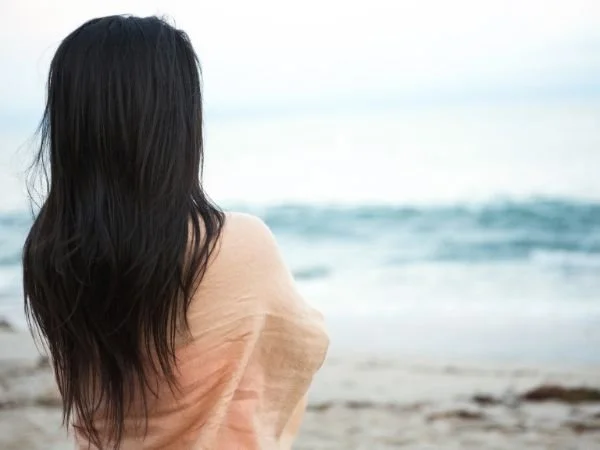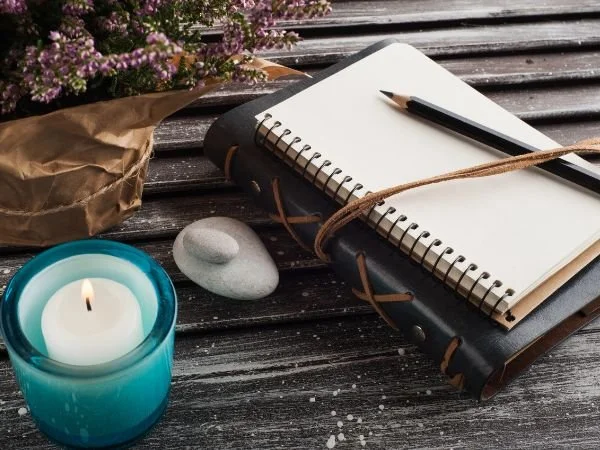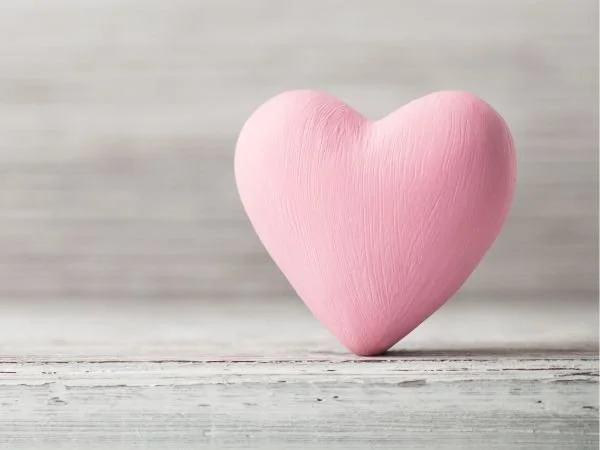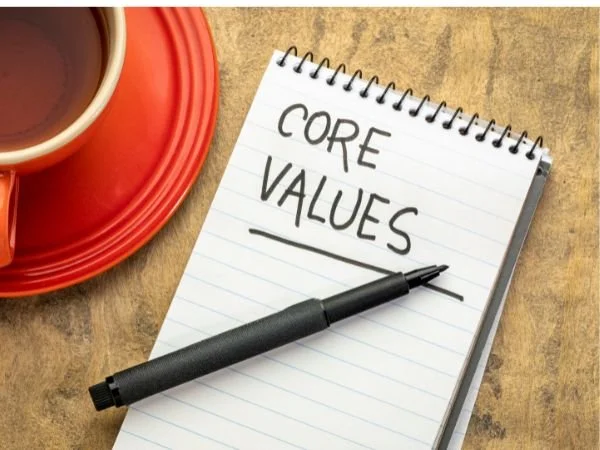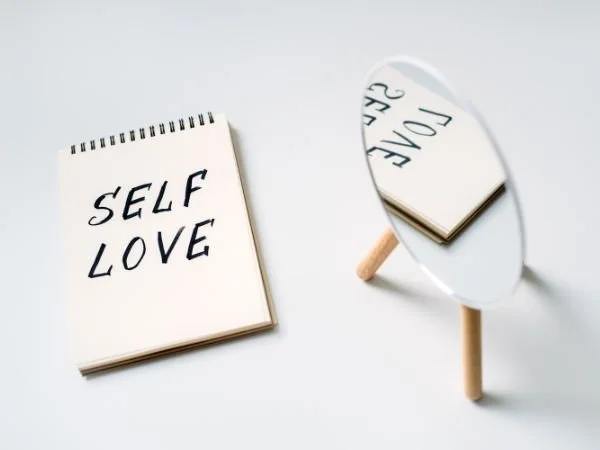130: Healing After Female Friendship Breakups
Losing a friendship can be painful and unexpected. In this episode, I answer a listener’s question about how to heal after the end of a female friendship. I explore why these relationships can be difficult, how to process the loss, and why it’s okay that not all friendships last forever. I also touch on the role of childhood wounds and patterns in our connections. If you’re navigating friendship heartbreak, you’re not alone. I open the episode with a poem I wrote about friendship breakups.
Poem ✍️
Timestamps ⏱️
Introduction :05
Poem: 2:28
Question: 3:42
Outro: 24:11
Have you followed and left a review for New View Advice?
Let me know what you think of the podcast! Podcast followers and ratings help bring new listeners to the show, as well as help me to continue creating content. So if you enjoyed the show, I’d love to ask you to follow and leave a rating on your podcasting platform by:
Head to New View Advice on Apple or Spotify
Click Follow on your podcasting platform
Scroll down (or when promoted) click the 5 star rating!
-
This podcast was transcribed by an AI tool called Castmagic. Please forgive any typos or errors.
Amanda Durocher [00:00:01]:
Welcome to New View Advice with Amanda Durocher. Hi, beautiful souls. My name is Amanda Durocher. Welcome to New View Advice. If you're new here, this is a healing centered advice podcast where I offer guidance for the healing journey. Don't believe I have all the answers you seek. I believe you have all the answers. You just may need a new view, and it'll help along the way.
Amanda Durocher [00:00:18]:
Thank you for joining me for today's episode. Today, I'm answering a question from a listener who recently went through a friend breakup. They are wondering how to process this friendship, why did it end, and and just having all the feelings that happen at the end of a friendship. Today, we are specifically speaking about the end of female friendships. I think female friendships deserve their own episode and their own honoring. I think that the relationship between two women is a beautiful gift, and it also can be very painful. I think that many of us here have experienced the end of friendships, and it can be very heartbreaking. And I found in my own life, as I'll speak about in today's episode, that when we don't fully process these experiences, they continue to show up in our relationships and in our friendships.
Amanda Durocher [00:01:01]:
So it's important for us to really honor these relationships and to remember that not all friendships are meant to last forever. I think that there is a narrative out there that female friends are supposed to be in your life forever, and it's just not the truth. I think that the truth is that just like any relationship, some friendships are meant to be there forever, and some friendships are just there for a phase of our life. And there's nothing wrong with ending friendships, especially if you're in a friendship that is no longer serving you. So I just wanna put that there upfront. So my intention for this episode is to honor all of us moving through the heartache and heartbreak of the end of a female friendship and to offer different ways to process the end of these friendships and why it could be so hard when these friendships end. Before I jump into today's episode, I want to mention that if you haven't already, I invite you to check out newviewadvice.com, where we have content for the healing journey. We have blog posts written by me and other amazing writers on the site.
Amanda Durocher [00:01:54]:
I also share poems and stories for my own healing journey. You can check that all out at newviewadvice.com. We also have meditations and journal prompts. New View Advice is a space for healing, and it's a space where I create content in hopes to help others feel less alone as they navigate their own healing journeys. So I invite you to check that out. Before I answer today's listener question, I decided to read a poem I recently wrote that I shared on my website. And this is a poem I call Friendship Breakups. So I'm gonna share that first and then we will jump in today's listener questions.
Amanda Durocher [00:02:21]:
So with that, let's jump on in. I call this poem From Breakup. You walked into my life and I thought you were fantastic. I think I accidentally placed you on a pedestal. You embodied courage, beauty, and conviction. I opened my heart to you. I don't do that very often. I imagined a life with you, one where we shared everything and spent days doing nothing.
Amanda Durocher [00:02:47]:
I loved you in a way I can't put into words. You were there for me at a time when I needed someone. I imagined we'd be cheering each other on, always in the front row, but life had other plans. As my therapist says, you're in my life for a reason and a season, but not for a lifetime. Your friendship was a gift. I wish it lasted longer, but accepting the end is what I have to do. Thank you for being there. Thank you for your friendship.
Amanda Durocher [00:03:11]:
Thank you for seeing me. I wish you nothing but love, happiness, and peace. I still think you're fantastic and will be cheering you on just now from afar rather than in the front row. I consider poems to be emotional on paper. So that was a poem that I wrote recently while going through my own friendship breakup and the grieving process. So I wanted to share that here in case anybody can relate. And now let's jump on into today's listener question. Hi, Amanda.
Amanda Durocher [00:03:43]:
I love your podcast, and I've been listening to a lot of episodes. You mentioned that recently you went through a friend breakup. Me too. I had a friend of almost fifteen years, and our friendship ended recently, and I am devastated. A little background, we were friends since middle school, best friends, and I thought we'd be friends forever. For the last few years, things have become distant between us. We used to do everything together, but I feel like at some point, I started growing up. Partying less, I now have a serious boyfriend.
Amanda Durocher [00:04:07]:
I've leaned into my healing journey, and she didn't. At first, this was fine. But since the beginning of this year, I began to see our friendship differently. She denies it, but I don't think she liked the new me. I've become more confident, and I'm happy in a lot of areas of my life, and I found her tearing me down. Her criticisms and neglectful attitude hurt me over and over again. I tried to patch it up. We had many conversations where I told her how I felt.
Amanda Durocher [00:04:30]:
In those conversations, she always appeared to understand me. She admitted she missed me and felt like there was distance between us. I prioritized our friendship, but her attitude didn't change. And honestly, keeping up with her felt like a chore. The final straw came when I tried to tell her how I was feeling again. I was feeling disconnected, and she said she didn't even feel like I was trying. Suddenly, it became clear. There was no repairing this friendship.
Amanda Durocher [00:04:51]:
I didn't just view her as a friend. She was like my sister. I don't have a biological sister, so this friend had become family. And in this moment, I realized it was over. My heart aches just writing this question. I still love her, but I felt as though I was carrying our friendship for so long. And then her telling me that she didn't even feel like I was trying made me clearly realize that none of the effort over the past few years even mattered to her. She She just wanted me to go back to the me who used to drink a lot, need her, gossip, and party with her.
Amanda Durocher [00:05:18]:
We haven't spoken since I told her I couldn't be her friend anymore, and now I'm heartbroken and sad. How do I move on after this friendship? Was I wrong for ending it? Is there a way to repair it that I didn't see? What do I do now? Any advice? Thank you so much for this question. As you mentioned, I relate to this question so much, and I'm so grateful to have received this question. I received a few questions in the last couple weeks that I feel very called to answering because sometimes I wonder if I've said it all on the Internet. And then there's certain questions that I'm like, ah, I have something to say there. And this question, I really felt like I had something to say. And I just wanted to thank you for writing such a beautiful question about how you feel and about this friendship. I'm so sorry that this friendship ended.
Amanda Durocher [00:06:01]:
A friendship of fifteen years, that is not an easy relationship to end. So I just wanna honor you in wherever you're at. Because truthfully, how do you move on? This is gonna take some time and some healing. Your heart was involved. You know, the friendship breakup I went through recently wasn't as long as fifteen years. It was much shorter relationship, but it was still incredibly painful. I think your friendship sounds like it's very complex and has a lot of layers. But I also wanna honor anybody out there that all relationships have the ability to break our hearts, and it doesn't matter how long it was.
Amanda Durocher [00:06:33]:
Honor your feelings along the process. And for you here, I also wanna say that you asked if you were wrong for ending it. No. I don't think you were wrong for ending it. It sounds like you did what was needed and what was best for you. And there are many times in life that the best choice is the hard choice. And that's what you did here. You made the hard choice to end this relationship.
Amanda Durocher [00:06:54]:
It would have been quote unquote easier to not say anything. But then, I think as you know, was it easier? Was it easier when you describe this relationship as feeling like a chore? I don't think it was easier. But we convince ourselves sometimes that staying in these relationships that are not serving us or that we think we can just kinda pull along is the easier choice. But it sounds like this relationship was burdening you, and you weren't being seen or met with where you're at in this relationship. And you deserve friends who see you, who love you, who honor you, who celebrate you because I'm gonna celebrate you here. It sounds like you've made a lot of positive change over the past couple years, and that's fantastic. I'm so happy for you. I'm I'm so happy you're in a relationship that's happy and healthy.
Amanda Durocher [00:07:40]:
I'm so happy that you've been on your healing journey. You've been honoring yourself, and you've been growing your confidence and your happiness. You deserve all that. You deserve friends who see that. Unfortunately, female friendships can be hard because I found that sometimes women have a hard time honoring each other and celebrating each other. From a young age, many women are taught to compete with one another, and we're taught to compare ourselves to one another. And this creates a dynamic where it's hard for us sometimes as women to celebrate one another. When we have to compete with another, we think that there's not room for all of us.
Amanda Durocher [00:08:16]:
And that is a really heartbreaking thing when it comes to female relationships that if there is a female within the dynamic who feels like they have to stay small or they have to act a certain way, they're not gonna like it if you start acting a different way. They're not gonna like it if you change that dynamic. One, many times people do not like when dynamics change. People like when things stay the same. So change can be hard for people. And if the way you're changing is beginning to change from some of these behaviors you used to share, like partying or drinking a lot or going clubbing or something like that, and you no longer wanna do that can be hard for your friend. And it sounds to me like you're somebody who has a growth mindset, you're looking to grow in life, you're looking to change and ebb and flow. You know, that's why I think we're here to go on the journey of life.
Amanda Durocher [00:09:02]:
But some people don't wanna change. Some people wanna stay the same. They don't want their life to change. They don't want their relationships to change. They don't wanna change as a person. And for those people, it's very hard to be around growth minded people. And it sounds to me like your friend wasn't looking to change. And that doesn't have to be a judgment, it's a reality.
Amanda Durocher [00:09:22]:
I used to judge myself so much because I do grow and change, and I've been healing a long time, and I'm constantly changing. And And when somebody else wouldn't change, I would judge myself if I noticed they weren't changing because I'd be like, well, they are. I just must not see it. That's not true. Not everybody is changing. Not everybody wants to change. And there's nothing wrong with that, but you don't have to stay small. You don't have to stay as old versions of yourself if there's somebody in your life holding you back.
Amanda Durocher [00:09:49]:
Because that's what it sounds like. It sounds to me like this relationship was holding you back because it felt like a chore to you. It felt like you couldn't be your new self. You felt like this person didn't like the new you. That must have been painful. That must have been really hard because a main part of healing is learning to love ourselves deeper. So I love the version of myself I am today. And when somebody else wants me to be the old version of myself, that's really hard for me.
Amanda Durocher [00:10:13]:
One, because it took a lot of work to be this version of myself. Put a lot of time and effort into her. And by her me, I put a lot of effort into me. And it hurts when somebody wants me to go back to a version of myself that was hurting me. That's really what it is. It's, oh, you want me to be the version of myself that hated myself? That sucks. That hurts me. And what also sucks is it just hurts that somebody doesn't wanna grow with you.
Amanda Durocher [00:10:36]:
I think when we grow, we want everybody to grow with us, you know, especially empathetic people. It's like, let's all grow together. And it's a hard reality that just not everybody's gonna go on our life journey with us. And I think also when it comes to female relationships, there's this expectation that these relationships are supposed to last forever. They're not. They're like any other relationship, but there's so many movies and TV shows where these female relationships last forever. It's just not what I've found to necessarily be true. That'll be true for some people.
Amanda Durocher [00:11:04]:
It just won't be true for all of us. And I know for me, I'm like you and I don't have many female friends from my past. I've changed a lot over the years, and my friendships have changed as well. And that's created a lot of heartbreak along the way, and it deserves to be honored and felt and processed. In my most recent friendship breakup, I was friends with this woman who I still think she's fantastic. She's who I wrote the poem about. But what I realized is I thought I could change her. There were certain red flags that have popped up along the way, And I really feel like I was playing out a pattern like you would with a man where I was like, I could change you.
Amanda Durocher [00:11:41]:
I could change him. But I wasn't even thinking that consciously while the relationship was going on. While the relationship was going on, I just little things would arise and I try to think of solutions for them. I wasn't telling myself I can change you. I would just see things I'd be like, well, maybe if we did this, that would help her. Or maybe if we did that, this would help her. But what I was doing was I was trying to fix her by constantly thinking, oh, I could do this to help her. I could do that to help her.
Amanda Durocher [00:12:07]:
I could help her here. I could help her there. But at some point, I lost myself a bit in the relationship because all I was doing was trying to help her. And one day, I asked for help, and it was a no. She was not able to help me. And from that point forward, some other things happened, and I was able to see the relationship clearly. That it wasn't a mutual we support each other. It was very much I was supporting her and she was unable to support me.
Amanda Durocher [00:12:33]:
And the truth is she never pretended to be anybody she wasn't. It's not like her fault or anything. I just didn't see the relationship clearly. I only saw what I wanted to see for a very long time, which was another thing I wanted to mention here with female friendships is sometimes I think we meet people and we think they're the same as us. I made that mistake in this relationship. I was like, oh my god. We're the same. I saw some things in her that I have within myself that I had never seen in anybody before.
Amanda Durocher [00:12:59]:
And seeing those in somebody, I felt so seen. But that was a moment that I look back on and I see that my empathy was getting the better of me. And this is a pattern I played for a long, long time. This is a little note to any empaths out there. That in my life what I've noticed is that I've let my empathy get out of check. And what that means is I've been overly empathetic with other people and not been empathetic with myself first. Empathy is a gift and you deserve that gift first. Always remember to be empathetic with you first.
Amanda Durocher [00:13:29]:
Honor your feelings first. Honor your emotional experience first. And what I noticed that I used to do, that I am now highly aware of, is that I used to be so empathetic because if I saw my pain in somebody else, it was a way for me to finally see my own pain. It was hard for me to just see my pain. I've judged the things I've been through, my traumas, my pain. I've judged it for a very long time because it was invalidated when I was younger in many different ways. And because of that, I created this pattern. I would see my pain in someone else.
Amanda Durocher [00:14:03]:
And I was finally able to see, yes, that's real. That painful experience is real. But what I did in those dynamics was I saw it in somebody else. I became very empathetic with this person. I became very loving and compassionate towards that person. But that person wasn't seeing me the same way I was seeing them. That person very often loved the fact that I was so kind to them and I was so empathetic towards them, but they were not giving me the same empathy in return. But in many relationships, I remained blind to that until the relationship hit a breaking point, until the relationship became too much of a burden where I was seeing too much of this person's pain and they were becoming too reliant on me or something like that.
Amanda Durocher [00:14:44]:
Many different relationships, many different ways. But this is a pattern I played out in my life, and I don't think it's uncommon. And it took me a very long time to see that my empathy, though it is a gift, is not something I have to give to everyone. And I mentioned that here too because it sounds like you really tried in this relationship. I'm sure you saw your friend's experience. Maybe you tried to change yourself. Maybe you tried to really honor them. Like, you said that she told you she missed you and that she felt the distance between you.
Amanda Durocher [00:15:15]:
But it doesn't sound like she did anything to change her behavior. And then you did change, and she told you she didn't think you were trying. To me, that sounds like a friendship where you were bending over backwards, and that person wasn't at all. And when she said to you, she didn't think you were trying, it was because you didn't go back to being the old version of yourself. Because you were trying. You were changing. You were trying to find a new way of being, and she didn't want a new way. She wanted you to go back to the old way.
Amanda Durocher [00:15:43]:
Do you ask if there was any way to repair this relationship that you didn't see? I feel like you might be kind of going through a loop in your head of asking yourself that question. I wanna say to you, no. I don't think there was any way to repair this. I think you tried everything. You had the tough conversations. You prioritize the friendship. You repeatedly brought up when things were bothering you. And at some point, it was too much.
Amanda Durocher [00:16:06]:
And that's okay. And I think that's the reality of many friendships. I think that female friendships are really hard for different reasons. I don't think they're always hard, but I think that if somebody's emotionally immature or somebody is unable to communicate boundaries or if somebody is stuck and not willing to change, those relationships can become really, really hard on somebody who is growing, who is changing. And I think that it's important to recognize, as I've mentioned multiple times, that not all female friendships will last forever. I think that when we're healing friendship breakups, it's important to look at other friendships. Like, as you're grieving this friendship, do old friendships come up for you? I know that for me in my life, I laid out that pattern of overly empathizing with people, empathizing with somebody before myself, and that happened around this age of 10. I had one trauma when I was 10 years old that I hadn't really spent time with because it was an experience of trauma that I had been on the outskirts of.
Amanda Durocher [00:17:04]:
So I believe trauma has a ripple effect. What I mean by that is a traumatic event happens and it's like dropping a stone in still water, and there's a ripple. And many people are impacted by one traumatic experience, not just the person who goes through the trauma. So when I talk about sexual trauma on the podcast, I'm the rock being dropped. The experience happened to me, and there's a ripple. And I do know that that trauma has impacted other people. I do wanna note here that just because I was the person who went through it, it's not my responsibility to heal anybody else who was impacted, but it's just a reality. That trauma impacts so many people, and there's a ripple.
Amanda Durocher [00:17:41]:
When I was 10, I experienced being in one of the ripples where I had a friend whose sister died. And I was very, very close to this friend at the time, and after her sister died. I spent a lot of time with her family afterwards. I spent the entire summer with her. So I was very much around this grieving family in the direct aftermath of this death. And I mentioned that because what I've realized over the past couple weeks is how much being a part of this experience impacted me. At the time, I had the narrative given to me over and over again by different people that I was not the one who lost his sister, so I should not be so impacted. So I began becoming overly empathetic.
Amanda Durocher [00:18:21]:
I was in a lot of pain myself. I see now how traumatic it was to go through this experience, but that experience really deeply impacted me. And what ended up happening was I lost all my friends. I think there's different reasons for this. But at that time, I lost my three best friends in three different ways. So the girl whose sister died stopped being my friend, and she found all new friends who didn't know her sister. My best friend of a very long time became popular, told me she didn't wanna be my friend anymore. And then I lost a third friend who told me that I shouldn't be so impacted by what happened.
Amanda Durocher [00:18:53]:
I lost my three best friends all at once, and I was left friendless at the age of 10. And here I am in my thirties still seeing the impacts of that event. Because I blamed myself for so much of this situation. That wasn't my fault. I didn't know how to process grief. It wasn't my fault this little girl died. It wasn't my fault that I lost these friendships. But at the time, I began to prioritize other people and their pain over me, and I created this pattern within relationships.
Amanda Durocher [00:19:21]:
I became afraid to be myself, and I overly empathized with others, and I celebrated others, never celebrated myself. And I've seen how I played this pattern out from the sixth grade. And so that was a real root experience for me. So I mentioned all this because the more we can see ourselves clearly, the world clearly, and the people in our life clearly, the more we heal and we're able to process these past heartbreaks. It's important to bring awareness to these situations and to feel our feelings because then these experiences can get stuck. Like how I mentioned my most recent friendship breakup brought up friend breakups from middle school because I hadn't processed that. And the truth is we have to process and honor all our heartbreak. It really is part of the human experience to see ourselves and our stories clearly.
Amanda Durocher [00:20:07]:
And sometimes it can be so hard to see our pain and to honor the young one within us, the inner child, but it's truly freeing and liberating once we do. Because these things don't arise to punish us or to pull us back to the past. They arise to be looked at and to be honored because the pain we experience then deserves our time and attention. If it's still living within us, it often still has a story that needs to either be let go of or a lesson for us to learn. So friend breakups are so difficult, but they're also an invitation for us to be with ourselves. I find female friend breakups can also trigger the mother wound. They can trigger relationships with our mother because sometimes patterns we play out with other females originate with our relationship with our mother. We feel like we have to care take for our mother, we might be a caretaker in friendships.
Amanda Durocher [00:21:00]:
If we feel like we have to change ourselves in our relationship with our mother, we are likely to change our self in our relationship with other females. This can also trigger the sister wound if you have sisters. If you were compared to your sisters or you competed with your sisters, you might find yourself as somebody who compares yourself in female friendships or competes in female friendships. This is all just to bring awareness to these patterns because awareness is truthfully the first step to change. We have to become aware of why we do the things we do in order to change moving forward. I hope something in this answer was helpful. But with all that said, I just wanna honor wherever you are at with this friend breakup. I send you so much love and compassion because matters of the heart are painful.
Amanda Durocher [00:21:42]:
Every time my heart breaks, I am reminded of the human experience and how I think so often so many of us are running from heartbreak. Old heartbreak, the fear of future heartbreak, or present day heartbreak because it is so painful. But when we move through the feelings, we move through the grief, the sadness, the realization that maybe we hadn't seen a situation or a person clearly, maybe we saw what we wanted to see rather than what was right in front of us. Each time we do that, we're able to free ourselves. We're able to see the truth. And the more we're able to do that, the more we're actually able to open our heart to new, more fulfilling friendships and people who will honor us and where we're at. You deserve friendships with people who see how fantastic you are. People who celebrate that relationship you're in.
Amanda Durocher [00:22:30]:
People who celebrate your happiness, your healing. Healing's hard. This is hard work. It is hard to be with pain of the present, past, and to honor the fears we have around heartbreak. The future, it's hard work, but it's also beautiful, and it also leads to a more fulfilling life. A life where we feel alive and connected to ourselves. When we disconnect from our feeling, from our heartbreak, and from our pain, all we're doing is disconnecting from ourselves. That is ours to be with and ours to feel.
Amanda Durocher [00:23:00]:
Nobody else can feel our emotions for us. Nobody else can truthfully see all the pain we've been through except for us. That's your journey. It's your journey to be with your truth. And I hope you find ways to share it with others because I think sharing truth with one another is one of the coolest things we can do as well. I just wanna thank you again for this question. I think this is such a relatable question. I have talked with so many women throughout this experience who have been like, me too.
Amanda Durocher [00:23:26]:
Dang. It hurts when friendships end. Because at the end of the day, we're all seeking connection. And I think women specifically can be disconnected from each other for different reasons, including trauma, wounding, and that competition I mentioned and feeling jealous of one another and feeling like somebody has to be better, somebody has to be worse. These weird dynamics women play out, which I'd love to do another episode on, but I think so many of us can relate to it. And it's so healing when we can come together and truly see each other and honor each other's beauty. And you deserve friends that will do that, and I know you will find those friends who can do that. I truthfully believe that.
Amanda Durocher [00:24:01]:
And I know that you deserve that. So I'm sending you so much love. Thank you again for this question. Thank you for joining me for this episode about friend breakups and the end of female relationships. I am so grateful to be able to have these conversations with you each week and to be on this journey with you because I am truthfully healing right alongside you. As I always mentioned, I don't have all the answers, but I believe you do. And I believe that when we have these conversations, we're able to find our own truth and things we feel isolated in. We're able to see we're not alone, and I think that has power to help us heal as well.
Amanda Durocher [00:24:38]:
Just feeling not alone in how we're feeling because I know that feeling alone in my pain, feeling isolated led me to feeling many things, including feeling crazy, which was not helpful for my healing journey. So thank you again for this question. If you have any questions you'd like to hear answered on a future episode, I invite you to visit my website, newviewadvice.com/question, or send me an email at contact@newviewadvice.com. Thank you so much for joining me for today's episode, and I hope I was able to offer you a new view on whatever you may be going through. Send you all my love. See you next time.




